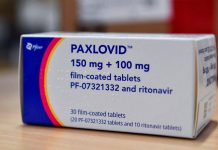A Pharmacy Benefit Manager (PBM) is a third-party administrator of prescription drug programs for commercial health plans, self-insured employer plans, Medicare Part D plans, the Federal Employees Health Benefits Program, and state government employee plans.
It seems like PBMs are tilting the market, 80% of which is controlled by three major PBMs – Express Scripts, CVS Health, and OptumRx of UnitedHealth Group – in their own and unusual ways.
A closer look into some of the drugs’ pricing shows how PBMs can control the market and use anti-competitive tactics such as favoring brand-name drugs over generic drugs to boost their own profits, according to Endpoints News.
Antonio Ciaccia, CEO of 46brooklyn Research, told Endpoints that many commercial health plan sponsors are naive when it comes to drug pricing. And most of them rely on benefits consultants who also “have varying degrees of expertise and conflicts of interest.”
46brooklyn Research is an Ohio non-profit corporation whose purpose is to improve the accessibility and usability of U.S. drug pricing data.
Ciaccia said, “Think of it like a cable bill. The bill is the bill until you call and say you’ll cancel it, and then the bill changes. In a much more sophisticated fashion, this same thing exists in the PBM world. Just when you think you know how PBM contracts work, you realize you have no idea how they work.”
For instance, some people with prostate cancer under PBMs are stuck with a much more expensive drug even though there are cheaper generic versions available on the market. Zytiga (abiraterone), a metastatic prostate cancer developed by Janssen Biotech, costs $10,000, but its generic version, which came to market in 2019, costs $450. Still, PBMs and some health plans cover the brand-name drug.
Why PBMs do so? One reason could be a rebate that they receive as a percentage of that price so they can gain these larger rebates more quickly with more expensive brand name drugs.
Despite the availability of generic abiraterone, PBMs and some US health plans might incentivize patients to select the brand name drugs by offering a lower co-pay so they can earn more.
However, UnitedHealthcare has recently told Endpoints that it does cover the generic version of Zytiga at 250 mg “across our commercial prescription drug lists.”
“Zytiga 250mg, Zytiga 500mg, and the generic abiraterone 500mg are currently excluded from coverage,” it added.
Ciaccia said that sometimes PBMs will set guaranteed prices for 96% of drugs covered, but then it’s in these other 4% — where they can play games, and “where all the fat of the meal will be cooked,” according to Endpoints.
Prof. Stacie Dusetzina of Vanderbilt University Medical Center told Endpoints that for “Medicare Part D plans, there were almost 600,000 beneficiaries who are still on plans that have brand-only coverage for Zytiga 500 mg version, although that number represents just 1.4% of all those enrolled.”
According to Prof. Dusetzina’s data, nearly 10 million plans cover both generic and brand Zytiga 500 mg (22% of all enrolled) and 54% of those enrolled are on generic-only plans. And another nearly 20% of the plans have no coverage for the generic or brand version.























